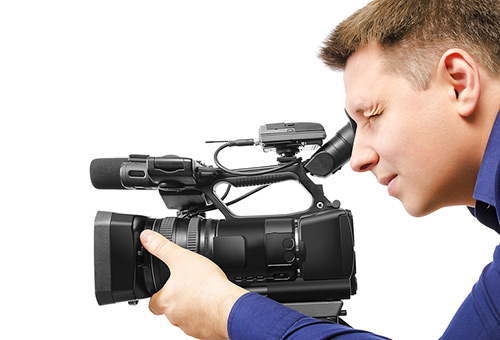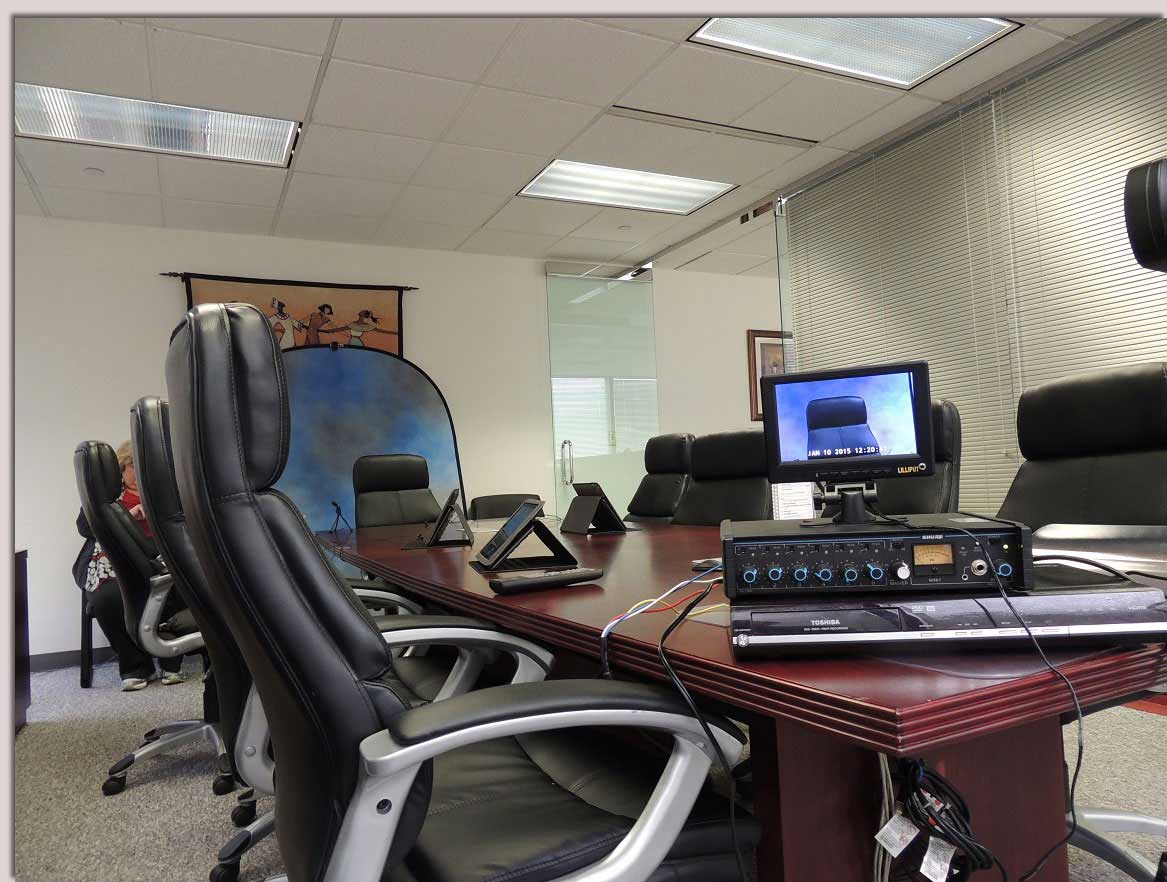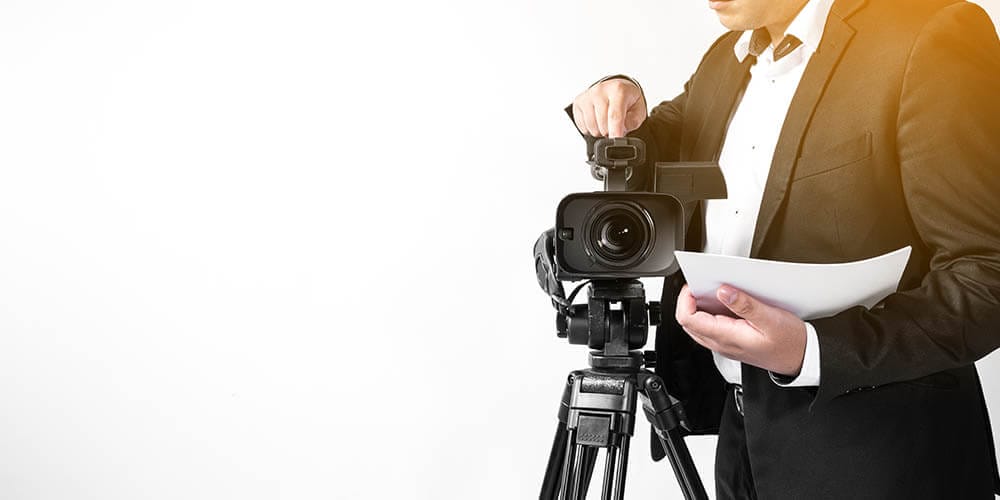The Function of Lawful Videography in Depositions and Trials
Lawful videography has actually emerged as a vital tool in both depositions and trials, providing a multifaceted method to documenting witness testaments. As lawful experts increasingly identify its value, it motivates a deeper exam of how these aesthetic documents can affect juror assumptions and test results.
Significance of Legal Videography
Legal videography plays a pivotal role in the paperwork and presentation of depositions and trials. This specialized field incorporates technical abilities with lawful expertise to develop a trustworthy record of procedures that can considerably affect situation results. The visual aspect of legal videography boosts the understanding of witness testimony, allowing jurors and courts to observe not just the talked words yet also the attitude, feelings, and body language of the witnesses.

The significance of legal videography expands beyond the court; it also plays a vital duty in protecting evidence for future referral, whether for allures or additional legal action. Its integration right into the legal procedure is vital for ensuring a fair and precise depiction of the truths, inevitably contributing to the quest of justice.

Refine of Legal Videography
While recording the nuances of depositions and tests, the procedure of lawful videography includes a number of critical actions that ensure top quality, accurate recordings. A professional lawful videographer prepares by examining the situation materials and recognizing the details requirements of the deposition or trial. This preparation includes familiarizing themselves with the participants and the context, which helps in recording important details.
On the day of the recording, the videographer sets up the essential equipment, which typically consists of high-def cameras, microphones, and appropriate illumination. Ensuring optimum angles and audio top quality is essential, as it directly influences the effectiveness of the recording. The videographer communicates with attorneys and participants to develop protocols, ensuring that every person understands the recording procedure.
Throughout the deposition or test, the videographer carefully records the procedures, paying close attention to both spoken and non-verbal signs. legal videography. This includes catching the disposition and responses of witnesses and lawyers. After the session wraps up, the videographer may edit the video for clarity and compliance with legal requirements, producing an end product that properly shows the procedures for future reference and usage in legal contexts
Advantages in Depositions
The incorporation of videography in depositions offers many advantages that enhance the overall process of gathering evidence. One primary benefit is the ability to record witness statements with visual and auditory fidelity, supplying a much more accurate representation of the witness's demeanor, tone, and body language. This multidimensional technique allows lawyers and courts to analyze integrity better than standard written records alone.
Furthermore, videographed depositions work as a powerful device for maintaining testament. Ought to a witness ended up being not available for test, their videotaped deposition can be played in court, making sure that their evidence continues to be obtainable and relevant. This element significantly minimizes the danger of shedding vital information that might affect instance results.
Moreover, making use of legal videography advertises much better preparation for attorneys. Assessing video footage permits legal groups to examine and fine-tune their methods, recognizing staminas and weak points in their cases. This primary advantage can lead to more engaging discussions in court.
Lastly, videography enhances the total expertise of the deposition process, instilling confidence in clients regarding the thoroughness of their legal depiction. By leveraging innovation, lawyers can dramatically boost the performance of depositions.
Impact on Tests
In many trials, the integration of videography can considerably affect the discussion of evidence and the court's assumption. Lawful videography records witness testimonies and important proof in a dynamic format, allowing jurors to engage with the material on multiple degrees. This aesthetic element enhances the narration element of a test, supplying context and psychological resonance that typical text-based evidence may do not Going Here have.
Additionally, video recordings can offer as powerful tools for impeachment during interrogation. When disparities develop in between a witness's previous statements and their courtroom testament, video clip proof offers an unbiased recommendation that can sway jurors' viewpoints. This immediacy and clearness can strengthen the reliability of a celebration's narrative while at the same time threatening opposing disagreements.
In addition, go to my blog making use of videography can aid simplify complex details, making it more accessible to jurors that might have a hard time to comprehend complex information offered exclusively via spoken testament. By integrating visuals with auditory information, lawful videography can improve retention and understanding, ultimately affecting the court's decision-making procedure. As a result, the impact of videography in tests prolongs past plain aesthetics; it plays an essential role fit the legal landscape and results.
Future Trends in Legal Videography
As we look towards the future of lawful videography, several emerging trends guarantee to improve its duty within the court. One considerable trend is the integration of expert system (AI) in video evaluation and editing - legal videography. AI can enhance the procedure of recognizing key minutes in tape-recorded depositions, permitting lawyers to rapidly access pertinent content, consequently boosting effectiveness in situation prep work
Additionally, the surge of online reality (VR) and enhanced reality (AR) technologies is anticipated to change just how jurors experience proof. By immersing jurors in a substitute atmosphere, these modern technologies can supply an extra profound understanding of complex scenarios, resulting in even more educated considerations.

Furthermore, the increasing demand for remote depositions, accelerated by the COVID-19 pandemic, will likely proceed. Legal videographers will certainly need to adapt click over here to brand-new software application and platforms to make sure high-grade recordings in digital settings.
Finally, the expanding focus on information security will certainly necessitate more stringent methods for storing and sharing video clip evidence. As the legal landscape advances, legal videographers need to remain abreast of these patterns to maintain their significance and performance in the judicial procedure.

Final Thought
In recap, legal videography serves a crucial function in the judicial process, enhancing the honesty of depositions and tests. By recording the subtleties of witness testaments, this medium not only maintains vital proof but additionally aids in providing details successfully to jurors. The importance of visual documents in assessing reputation and helping with interrogation can not be overemphasized. As technology continues to advance, lawful videography is poised to additional change its duty within the lawful landscape.